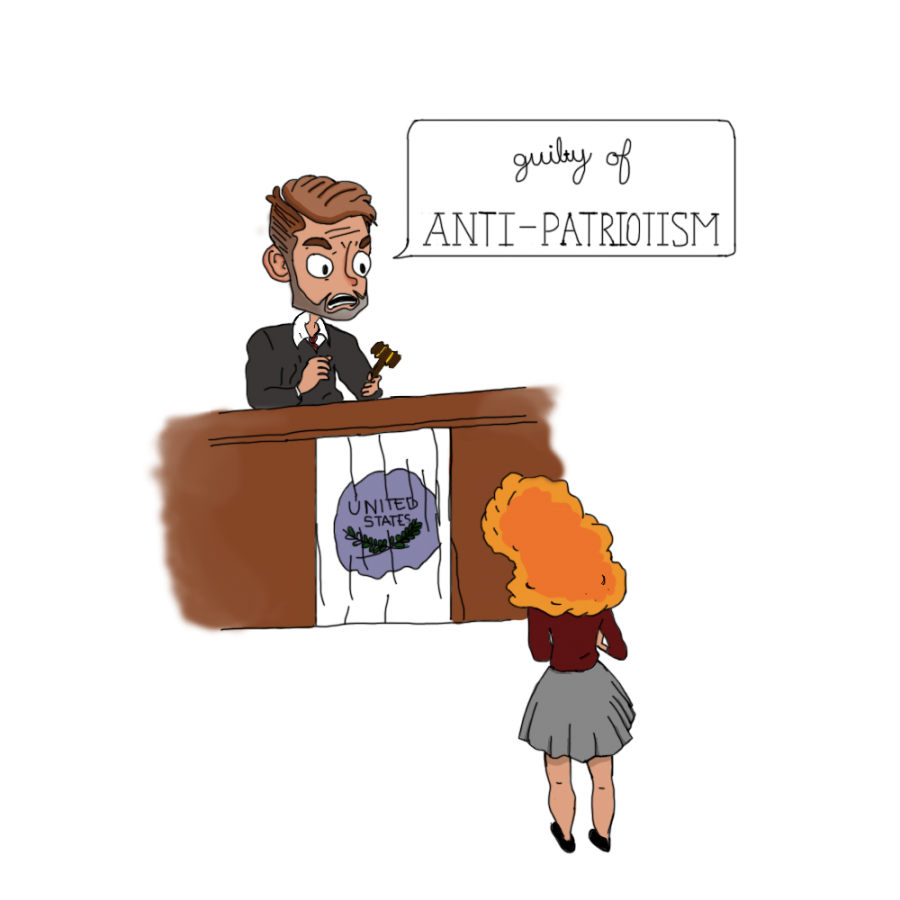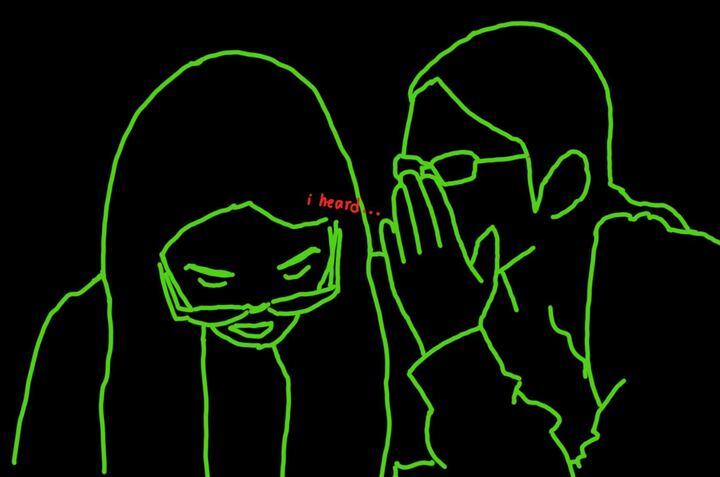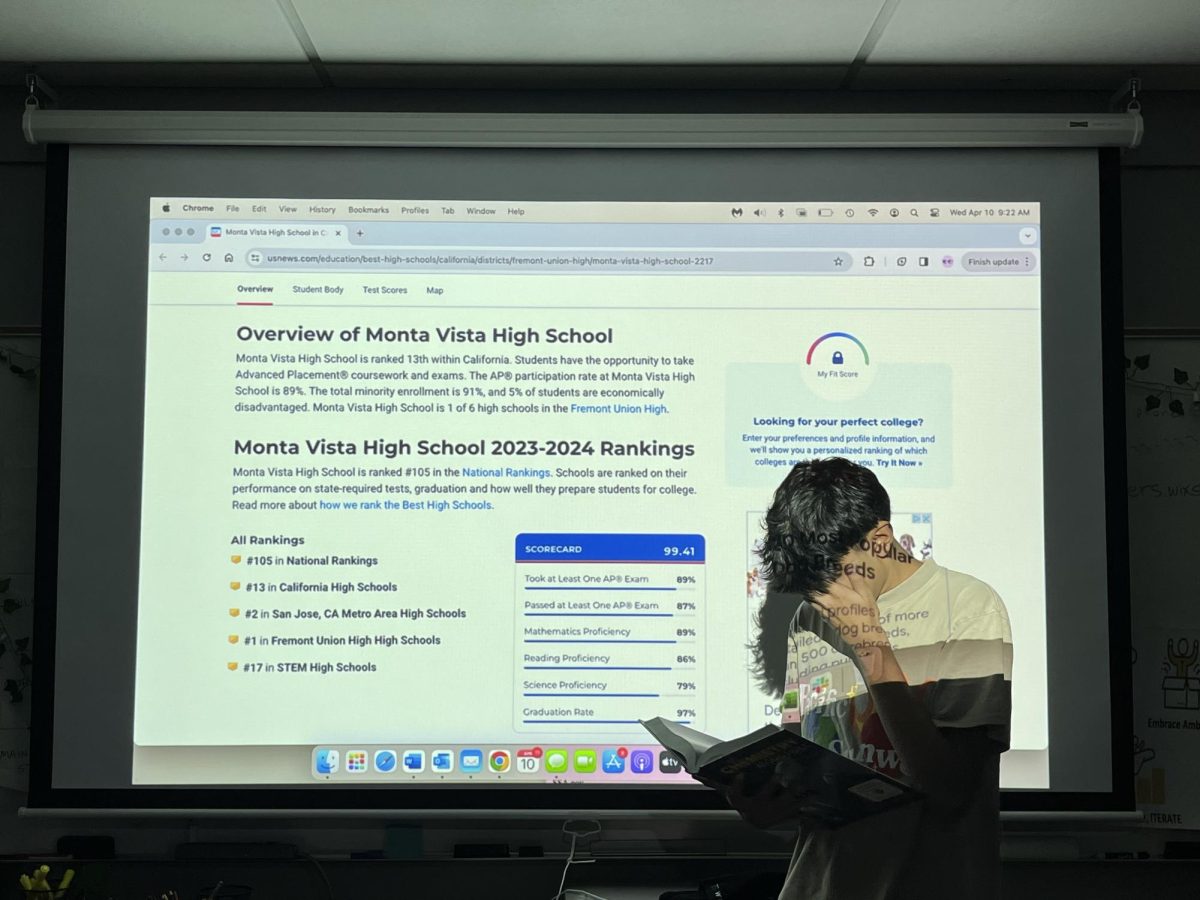PERHAPS, IN AGES PAST, you actually enunciated the “A” in “America” as a kindergartner, rapt in attention and absorbed by the haze of red, white and blue, repeating “I pledge allegiance…” Yet as years pass and your patriotism subsides, allegiance to America becomes a monotonous routine that has almost no meaning.
In many states, it is encouraged that public school students recite the Pledge of Allegiance every day. According to government teacher Ben Recktenwald, the California Education Code 52720 states that every public secondary school must conduct daily appropriate patriotic exercises. The reciting of the Pledge of Allegiance fulfills this requirement. In accordance to that law, MVHS opted for the “Historical Thought of the Day” announcements, which are heard daily during fifth period. Fortunately, for MVHS, pressure to pledge allegiance is not so prominent; instead, the sole source of stress is frantically finishing yesterday’s math homework to “In this day in history, Union Troops defeated at Chickamauga seek refuge …”
The Pledge of Allegiance, in itself, isn’t exactly offensive. It speaks to typical universal values of “a nation indivisible with liberty” and “justice for all.” However, the phrase “one nation” unified “under God” is considered controversial because it violates the First Amendment’s oath to “make no law respecting the establishment of religion.”
On May 9, 2014, an unidentified family of a student in Boston requested that the Supreme Judicial Court of Massachusetts take out the phrase “under God” from the Pledge of Allegiance. Ultimately, the court declined the request, because participation in the pledge is voluntary and mainly a patriotic exercise, rather than a religious one. While the family’s lawyers argued the phrase “under God” defies the First Amendment, the children of the family “did not receive negative treatment because they opt not to recite the words ‘under God,’” the decision countered.
In 2015, in Carlisle, Pa., a Wilson Middle School student was refused treatment by the nurse for not standing during the Pledge of Allegiance. An atheist group later requested apologies from the school district. In 1994, the Supreme Court ruled that no child can be forced to recite the pledge, but this decision was obviously disregarded by the nurse.
Of course, “under God,” or any specific phrase of the pledge, isn’t the tipping point. Through the constant repetition, younger children are brought up to believe in only one “American ideal” — unity under God, for example — and fail to utilize or recognize their First Amendment rights of free speech and acceptance of all religions. In all seriousness, if America is the “land of the free,” why are we required to even listen to a single interpretation of the American dream?
Also, one must consider if the pledge’s intended effect — patriotic unity— is even acknowledged or apparent in elementary or high school students. Patriotic unison isn’t to be “tamed” or “monitored” by rote memorization or recitation. Rather, a prominent, patriotic attitude should be voluntary. Anyone can recite “justice for all” or “pledge allegiance.” How they feel when they recite it is another matter entirely. Does the flag, a star-stitched cloth or the reciting of a sentence evoke patriotism at all?
When sophomore Sureena Hukko recited the pledge in elementary school, she said, “It never really meant anything to me when I was doing it. I just kind of did it because the school required me to.”
If “I pledge Allegiance” is uttered dispassionately, without any understanding of the patriotic connotations or roots, there is no point for children to say it in the first place.
“They are just going through the motions,” Recktenwald said. “With patriotism, you can’t force someone to love their country, but you can talk about ‘here are all the patriotic aspects, and be aware of the negative aspects.’”
The internet erupted into controversy after Colin Kaepernick, quarterback for the San Francisco 49ers, refused to stand during the National Anthem during a preseason game on Aug. 26. In an exclusive interview with NFL Media, he said, “I am not going to stand up to show pride in a flag for a country that oppresses black people and people of color.” There was a lot of backlash, and a high amount of anger and protest at his “disrespect.”
The first settlers of America were impulsive immigrants who traveled here to follow their own emotional and diverse beliefs. To recite the same sentence every day can never instill the rawness of these American dreams — even if your hand is over your heart.























